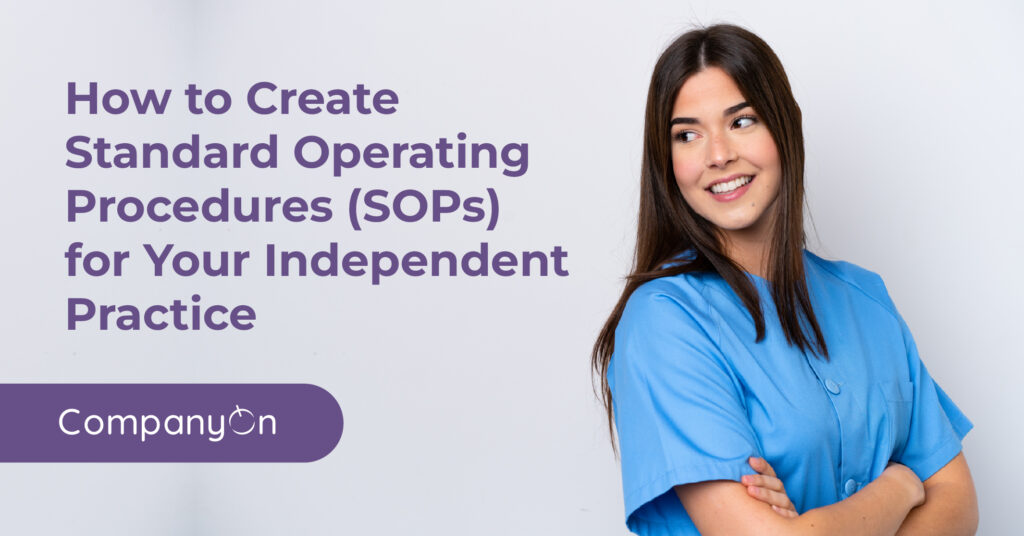In today’s fast-evolving healthcare landscape, both independent practitioners and healthcare organizations face significant challenges in compliance management. Regulations are constantly changing, technology is advancing, and patient expectations continue to grow. Ensuring compliance is not just about meeting legal requirements—it’s about safeguarding patient trust, improving operational efficiency, and maintaining a sustainable practice.
This article explores the key compliance challenges in healthcare and provides actionable solutions to help healthcare professionals overcome these hurdles. Additionally, we’ll highlight how CompanyOn offers compliance-driven solutions to help streamline and optimize healthcare practice management.

Understanding Healthcare Compliance Challenges
1. Recognizing Real Compliance Challenges
Not all compliance challenges carry the same weight. Some pose a significant risk to patient safety and legal standing, while others are minor operational setbacks that can be quickly resolved.
-
Major Compliance Challenges:
- Failure to comply with HIPAA regulations or patient data protection laws.
- Incomplete or inaccurate Electronic Health Records (EHRs) leading to malpractice risks.
- Not keeping up with evolving billing and insurance guidelines, resulting in claim denials.
-
Minor Compliance Challenges:
- Brief system downtime that affects administrative workflows.
- A minor documentation error that can be quickly corrected.
Understanding which compliance issues require immediate action and which can be resolved with minor adjustments is crucial to maintaining efficiency in healthcare practice management.
2. Healthcare Compliance vs. Business Compliance
Healthcare professionals not only deal with patient-related regulations but also business compliance that affects practice operations.
-
Healthcare Compliance Challenges:
- Keeping up with electronic health record (EHR) documentation standards.
- Ensuring proper informed patient consent processes.
- Adhering to infection control and workplace safety protocols.
-
Business Compliance Challenges:
- Tax compliance for independent healthcare practitioners.
- Data security policies to prevent cyber threats.
- Compliance with medical advertising and marketing ethics.
For a comprehensive guide on best compliance practices, check out Navigating Compliance and Legal Obligations in Medical Practice Management.
Strategies for Overcoming Healthcare Compliance Challenges
1. Automating Compliance Processes
Manual compliance tracking is prone to errors, inefficiencies, and delays. By implementing an automated compliance solution, healthcare professionals can:
✔ Monitor and manage patient documentation requirements.
✔ Receive alerts for regulatory updates and compliance deadlines.
✔ Ensure seamless reporting and audit tracking.
💡 Explore how Electronic Health Records (EHRs) improve documentation accuracy and regulatory compliance.
2. Building a Culture of Compliance Among Staff
Healthcare compliance is not just about policies—it’s about people. Staff training and engagement are crucial to ensuring that every team member understands best practices for patient care, data privacy, and risk management.
🔹 Regular Compliance Training – Conduct workshops and online courses to keep staff updated on new regulations.
🔹 Clear Compliance Policies – Ensure standardized protocols for handling patient records, billing, and data security.
🔹 Encouraging a Reporting Culture – Create an environment where employees feel safe reporting potential compliance issues before they escalate.
3. Strengthening Data Security Measures
With rising cybersecurity threats, ensuring patient data protection is a top priority. Healthcare providers must implement:
✔ Data encryption protocols to secure electronic medical records.
✔ Access control systems to restrict sensitive patient information.
✔ Cloud-based backup solutions to prevent data loss from system failures.
🔎 For more on data security in healthcare, read: The Power of Cloud-Based EHR Systems.
4. Adopting a Proactive Approach to Regulatory Changes
Regulations evolve frequently, and failure to stay updated can lead to non-compliance penalties. Healthcare providers should:
- Subscribe to regulatory updates from organizations like HIPAA, FDA, or CMS.
- Use compliance tracking software to monitor new requirements.
- Consult legal and compliance experts to ensure policies align with regulations.
💡 How to Build a Medical Referral Network explains how networking with industry experts helps stay ahead of compliance changes.
How CompanyOn Helps Ensure Healthcare Compliance
CompanyOn is a trusted partner for healthcare professionals looking to streamline compliance management and reduce administrative burdens.
Key Features That Support Compliance:
✔ Automated Compliance Tracking – Never miss a deadline with real-time alerts.
✔ Secure Electronic Documentation – Ensure regulatory-compliant patient record management.
✔ Integrated Billing Solutions – Reduce claim denials with accurate medical billing practices.
✔ HIPAA-Compliant Data Security – Keep patient records safe with encrypted cloud storage.
✔ Patient Engagement Tools – Maintain compliance in informed consent and communication protocols.
Discover more about CompanyOn’s compliance-focused solutions here.
Preparing for Future Compliance Challenges
To stay ahead of evolving healthcare regulations, healthcare professionals must adopt a proactive and adaptable mindset.
1. Stay Informed on Industry Changes
Regularly monitor updates on medical billing, telehealth regulations, and digital patient consent policies to avoid legal risks.
2. Foster a Learning-Oriented Culture
Encourage continuous education and staff training to ensure compliance across all levels of your organization.
3. Build a Reliable Professional Network
Engage with healthcare compliance experts and industry organizations to stay informed about regulatory changes.
🔹 Looking for strategies to strengthen patient engagement and retention?
Read: How to Improve Patient Retention with Digital Tools.
Conclusion
Overcoming compliance challenges in healthcare requires a strategic approach, ongoing education, and the right technology solutions. By implementing automated compliance tools, strengthening data security, and fostering a compliance-focused culture, healthcare providers can reduce legal risks and enhance patient trust.
With CompanyOn’s compliance-driven solutions, medical practices can streamline compliance management and focus more on delivering quality patient care.
✅ Ready to simplify healthcare compliance? Schedule a demo today.
Ready to make the switch?
Try Our Platform Free for 14 days.
See CompanyOn in Action
Schedule A Free 1:1 Personalized Demo





